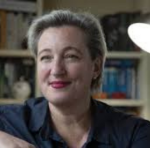IMHO: A short-term focus on survival is exhausting

OPINION: “Vibe; noun: a person’s emotional state or the atmosphere of a place as communicated to and felt by others.”
It’s a word I hear used a lot lately to describe everything from dinner parties to the mood of the nation.
If I had to pick a vibe that characterises this moment in time, I’d pick scarcity and the focus on the things we lack.
Our world is full of things that for most people signal scarcity: the Government not having enough money and cutting staff and services; the cost of rent or rates meaning we cut back on food and entertainment; jobseekers and the lack of jobs; a lack of stability and security driven by the madness of global politics.
Psychologists have written screeds about scarcity thinking and its counter, abundance thinking. As individuals we may be predisposed to scarcity thinking because of experiences as children, or past traumas and life-changing events such as redundancy.
When in the grasp of scarcity thinking, individuals focus solely on what they don’t have. Our mental bandwidth diminishes as all our energy is used to address what we lack, with an increasingly short-term focus on survival.
A scarcity mindset also assumes resources are limited and finite so if someone else has something, it is at your expense. Competition over resources seems inevitable.
In contrast, those with an abundant mindset will assume there are enough resources to go around and seek opportunities for themselves. They make longer term plans, are able to assess and take risks and innovate because they are positive about their future.
It’s not only individuals that adopt scarcity mindsets. I’ve seen boards and organisations take on the approach as well, especially in the community, not-for-profit sector.
With recent and probably ongoing cuts in a sector where funding is a perennial concern, it’s not surprising scarcity thinking pervades. Leaders in this sector have long been mindful that they can’t show any excess because to do so would be to face censure from funders and the public who expect them to run on oily rags and their smell.
But such thinking narrows the focus to immediate delivery at the expense of longer-term strategy and ensures that every other organisation working in a similar space is viewed as a competitor and a threat, rather than potential partner and ally. Sharing resources and knowledge stops. Leaders become increasingly risk-adverse and innovation and investment in development stops.
This can become a vicious cycle and an exhausting hamster wheel. Organisations operating under assumptions of scarcity are not setting themselves up to perform and succeed, or deliver the impact that their communities need from them.
I doubt community sector leaders are the only ones in the grip of scarcity thinking. We can see hints of it everywhere in our public services and companies.
In my experience the antidote is a clear focus on those the organisation is serving – clients or customers. Shifting the focus from what an organisation lacks to what its community or customers need from it and what value it can deliver can stop that grinding hamster wheel.
Boards can then ask the most critical question: “What value can we deliver that no one else can?”
If there is a clear answer, that the organisation can deliver unique value and impact, that should be the focus of strategy and delivery.
Opportunities open. Collaboration becomes possible. Abundance seems possible.
If we can shift our focus to what we uniquely offer rather than what we lack, we could transform not just our organisational vibe, but our entire community’s future.
 Jo Cribb is an experienced governor with more recent roles including the Royal New Zealand Navy, New Zealand Winegrowers and Tātai Aho Core Education. She is a previous chief executive of the Ministry for Women.
Jo Cribb is an experienced governor with more recent roles including the Royal New Zealand Navy, New Zealand Winegrowers and Tātai Aho Core Education. She is a previous chief executive of the Ministry for Women.
This article first appeared on Newsroom.co.nz, and is republished by permission.